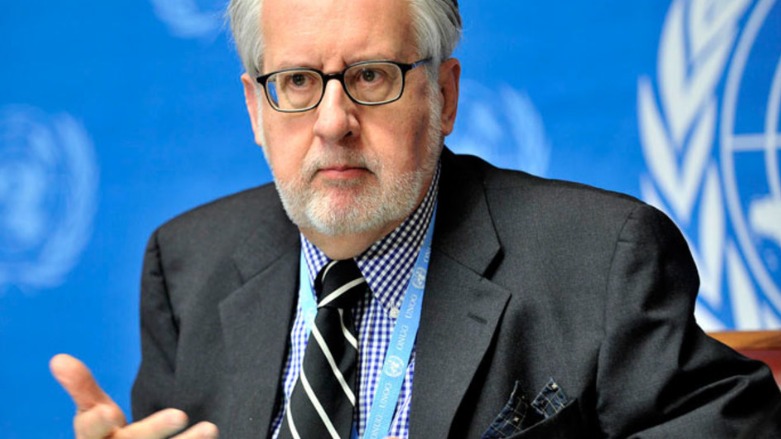UN investigator criticizes abuses in northeast and northwest Syria

ERBIL (Kurdistan 24) – Paulo Pinheiro, Chair of the Independent International Commission of Inquiry on Syria, on Tuesday during the 47th Session of the United Nations Human Rights Council criticized human rights abuses by different actors in Syria, including in northeastern and northwestern Syria.
"To the east, in Afrin in Aleppo Governorate and Ras al-Ayn in Hasakah Governorate, unclaimed attacks using improvised explosive devices, or IEDs, are killing and maiming scores of civilians," the UN official said about indiscriminate attacks in areas that Turkey has occupied since 2018 and 2019.
SNA violations
"In the same areas, members of SNA (Turkish-backed Syrian National Army) brigades continued arbitrarily detaining civilians, including women and children, and – in parallel – looting and appropriating properties throughout areas of control. Many are still unable to return to their homes," he said.
In March 2020, the United Nations Commission of Inquiry on Syria also accused the Turkish-backed Syrian National Army of carrying out war crimes such as murder, pillaging, and targeting Kurdish women in Turkish-controlled areas.
Read More: UN: Turkish-backed groups carry out war crimes, target Kurdish women
SDF Abuses
The UN official said that, in northeastern Syria, "unpopular initiatives by the self-administration, economic hardship, and rising insecurity linked to the re-emergence of ISIL (ISIS) remnants triggered widespread demonstrations, predominantly in Arab-populated regions."
He claimed that the SDF, at times, has responded violently. "At the end of May in Menbij, Aleppo Governorate, at least 5 were killed and 30 injured while protesting against the forced conscription of young men into SDF forces."
After the protests, the local authorities in Manbij halted military conscription in the town and promised to investigate the circumstances that led to security forces firing on demonstrators and hold accountable the people responsible.
Read More: Military conscription suspended after protests and riots in Syria’s Manbij
Pinheiro also highlighted "troubling reports of arbitrary arrest and death in detention are under investigation, including the recent death of Amin Issa Al-Ali, a member of the Kurdistan Democratic Party of Syria (KDP-S) in SDF custody."
Last week, the US urged an immediate investigation into this death amid allegations of torture. Amin Issa died in prison in Hasakah after his arrest by security forces with the Autonomous Administration of North and East Syria.
On Jul 4, an SDF delegation offered condolences to the family of Amin Issa Amin.
Read More: US calls for urgent investigation after Amin Issa Amin's death in Kurdish-controlled Syria
Repatriation
The UN official added that in the northeast, thousands of men and boys suspected of having links to ISIS, including foreigners, have been held by local Kurdish-led authorities for more than two years already. The majority of them are Iraqis and Syrians, while a minority are "third-country nationals."
Both the SDF and the civilian Autonomous Administration in North and East Syria (AANES) have publicly called on foreign countries, including Iraq, to repatriate their citizens. However, most of them have been reluctant to do so due to security, legal or political risks, and domestic opposition in their home countries.
"While some trials have taken place, most of the detainees remain without adequate judicial guarantees and outside the protection of the law," Pinheiro said. "While some Member States have proactively repatriated their child citizens with their mothers, in line with the best interests of the child, others continue to evade their obligations."
The UN investigator underlined that the estimated 40,000 children present in SDF-controlled camps are victims. "While some of their mothers may have also had roles in the ranks of ISIL (ISIS) and should rightly be investigated and where appropriate prosecuted," he underlined, "others were also victims of abuse, having been coerced or groomed into joining the group.
"States' refusal to repatriate further victimizes them while adding to the trauma of their experiences," the UN official concluded.
